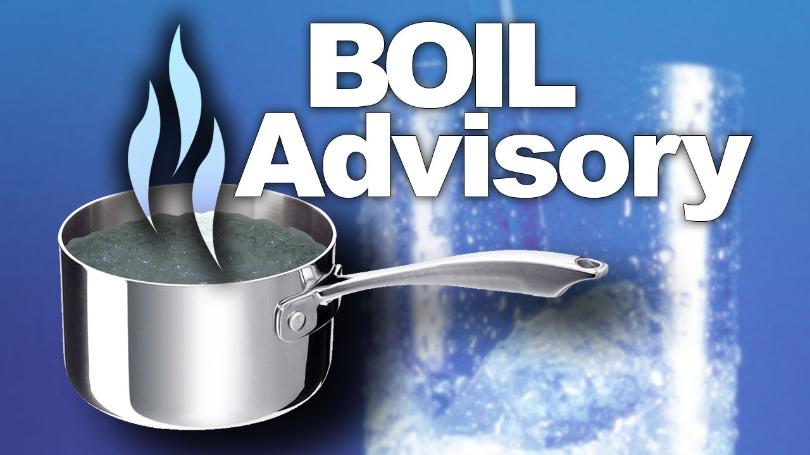According to Wikipedia a boil-water advisory or boil-water order is a public health advisory or directive given by government or health authorities to consumers when a community's drinking water is, or could be, contaminated by pathogens.
Under a boil-water advisory (BWA), the Centers for Disease Control and Prevention recommends that water be brought to a rolling boil for one minute before it is consumed in order to kill protozoa, bacteria and viruses. At altitudes above 6,600 feet, boiling should be extended to 3 minutes, as the lower boiling point at high altitudes requires more time to kill such organisms.
BWAs are typically issued when monitoring of water being served to consumers detects E coli or other microbiological indicators of sewage contamination. Another reason for a BWA is a failure of distribution system integrity evidenced by a loss of system pressure. While loss of pressure does not necessarily mean the water has been contaminated, it does mean that pathogens may be able to enter the piped-water system and thus be carried to consumers. In the United States, this has been defined as a drop below 20 pounds per square inch.
There are many possible water borne pathogens including protozoa such as Giardia and Cryptosporidium; bacteria such as Shigella and E. coli; and viruses. These organisms primarily affect the gastrointestinal system, causing diarrhea, abdominal cramps, nausea, and vomiting, with or without fever. Sometimes, these illnesses are contracted by drinking contaminated water, and in some cases skin contact could also lead to infection. These illnesses are not usually serious or life threatening except in the elderly, the very young or those who are immune compromised.
What should you do when the boil water notice is lifted?
- Flush household pipes/faucets first. Run all your cold water faucets on full for at least 5 minutes each. If your service connection is long or complex (like in an apartment building) consider flushing for a longer period. Your landlord or building superintendent should be able to advise you on longer flushing times.
- If you have automatic ice makers, dump existing ice and flush the water feed lines by making and discarding three batches of ice cubes. Wipe down the ice bin with a disinfectant. If your water feed line to the machine is longer than 20 feet, increase to five batches.
- For hot water heaters, water coolers, in-line filters, and other appliances with direct water connections or water tanks, run enough water to completely replace at least one full volume of all lines and tanks. If your filters are near the end of their life, replace them.
- Water softeners: Run through a regeneration cycle.
- Reverse Osmosis (RO) units: Replace pre-filters, check owner's manual.
- Replace other water filters, as they are disposable and may be contaminated. This applies especially to carbon filters and others that are near the end of their life.
If your drinking water has traces of lead in it however, heating or boiling your water will not remove lead. Because some of the water evaporates during the boiling process, the lead concentration of the water can actually increase slightly as the water is boiled. Avoid cooking with or drinking hot tap water because hot water dissolves lead more readily than cold water does.





Leave a comment